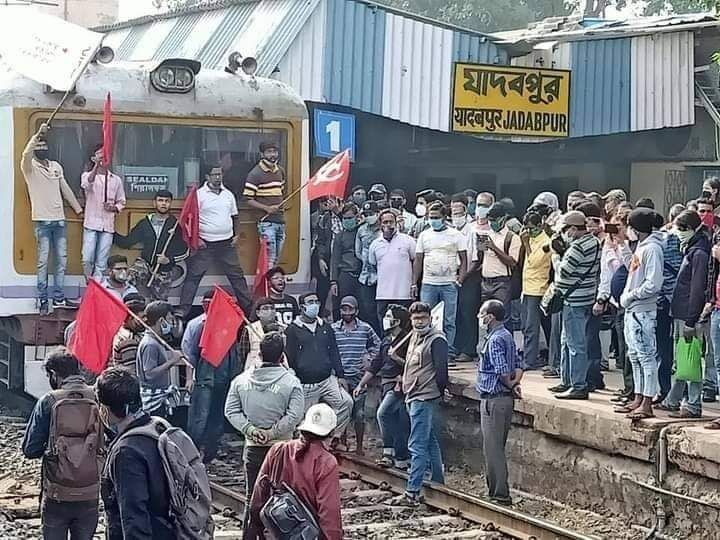A wake-up call

Just two week after the Bharatiya Janata Party (BJP) secured a convincing win in four of the five state assembly elections, the Central government — ruled by the same party — is facing a nationwide strike for its economic policies. Election victories have always been considered a marker of popular acceptance of parties and leaders, and mass protests and strikes reflect people's dissatisfaction with the regime. How does one reconcile the two aspects in a particular time frame to envision a non-contradicting singular reality? Economic hardship of the people is being reflected in their social restlessness but the same is not translated into political change. Political parties normally build their acceptance among people through: 1) political engineering, and 2) social outreach. The critical question is: have we reached a point where political engineering far outweighs the social outreach factor? Are our elections failing to reflect the social realities of our time? Finding answers to these questions is critically important for a country like India where a large section of society is still bereft of economic stability, particularly in the current state of affairs, and requires political handholding to get itself out of the quagmire. Notably, India's working class — represented by the central trade unions INTUC, AITUC, HMS, CITU, AIUTUC, TUCC, SEWA, AICCTU, LPF and UTUC — has called for a two-day countrywide strike against the Centre's "anti-worker, anti-farmer, anti-people and anti-national" policies. Consortium of trade unions is supported by the banking industry workers who have been relentlessly crusading against the government's attempts to privatise Public Sector Banks (PSBs) for a long time. It would be pertinent here to mark a distinction between a strike triggered as an immediate response to a particular policy and the one that is the culmination of sustained public dissatisfaction over a period of time, against a host of policies. The Central government must take cognisance of the demands put forth by the trade unions — to allay their concerns and also to preserve its own political credibility. Their main demands of the trade unions range from the scrapping of the labour codes, checking privatisation and scrapping of the National Monetisation Pipeline (NMP) to increased allocation of wages under Mahatma Gandhi Rural Employment Guarantee Act (MNREGA) and regularisation of contract workers. Some of these schemes, like NMP and labour codes, are enthusiastically pushed forward by the Central government and it is unlikely to revert back on these fronts, unless the resistance is as strong as the farmers' agitation! Successful implementation of any policy is incumbent upon consultations with, and acceptance among, the involved stakeholders — including target beneficiaries. The government shouldn't fail in incorporating conflicting opinions around the policies in question if it aims at smooth realisation of the core objectives of the schemes. Overwhelming support in favour of the strike indicates the concerns of trade unions are genuine and find resonance among the wider population. All Indian Trade Union Congress General Secretary Amarjeet Kaur had laid down his expectations, saying that more than 20 crore formal and informal workers would participate in the strike. States in the south, including Kerala, Tamil Nadu and Andhra Pradesh are significantly affected. Banking facilities in Delhi are impacted as well. Left workers in many areas of West Bengal have blocked railway tracks and railway stations, in solidarity with the trade unions protesting against Centre's policies. Furthermore, the Sanyukta Kisan Morcha — the farmers' organisation that had brought the government to its knees during the farmers' agaiation — has also said that it will "actively participate" in the two-day Bharat Bandh. However, behaving responsibly, the West Bengal government has mandated all workers to report for work during the two-day strike. The Maharashtra government has also invoked Maharashtra Essential Services Maintenance (MESMA) Act — barring state-run electricity company employees from joining the protests. The stated rationale behind invoking the MESMA Act is to ensure the strike doesn't cause "inconvenience to farmers, industries and the general public." Both the governments are known for being avid critics of the Central government, but their decisions perhaps look at the other side of the strike that would cause economic disruptions. While the protest from the trade unions is taking its due course, the governments must certainly look after smooth functioning in the meantime. For the Central government, the ongoing protests should serve as a wake-up call.



